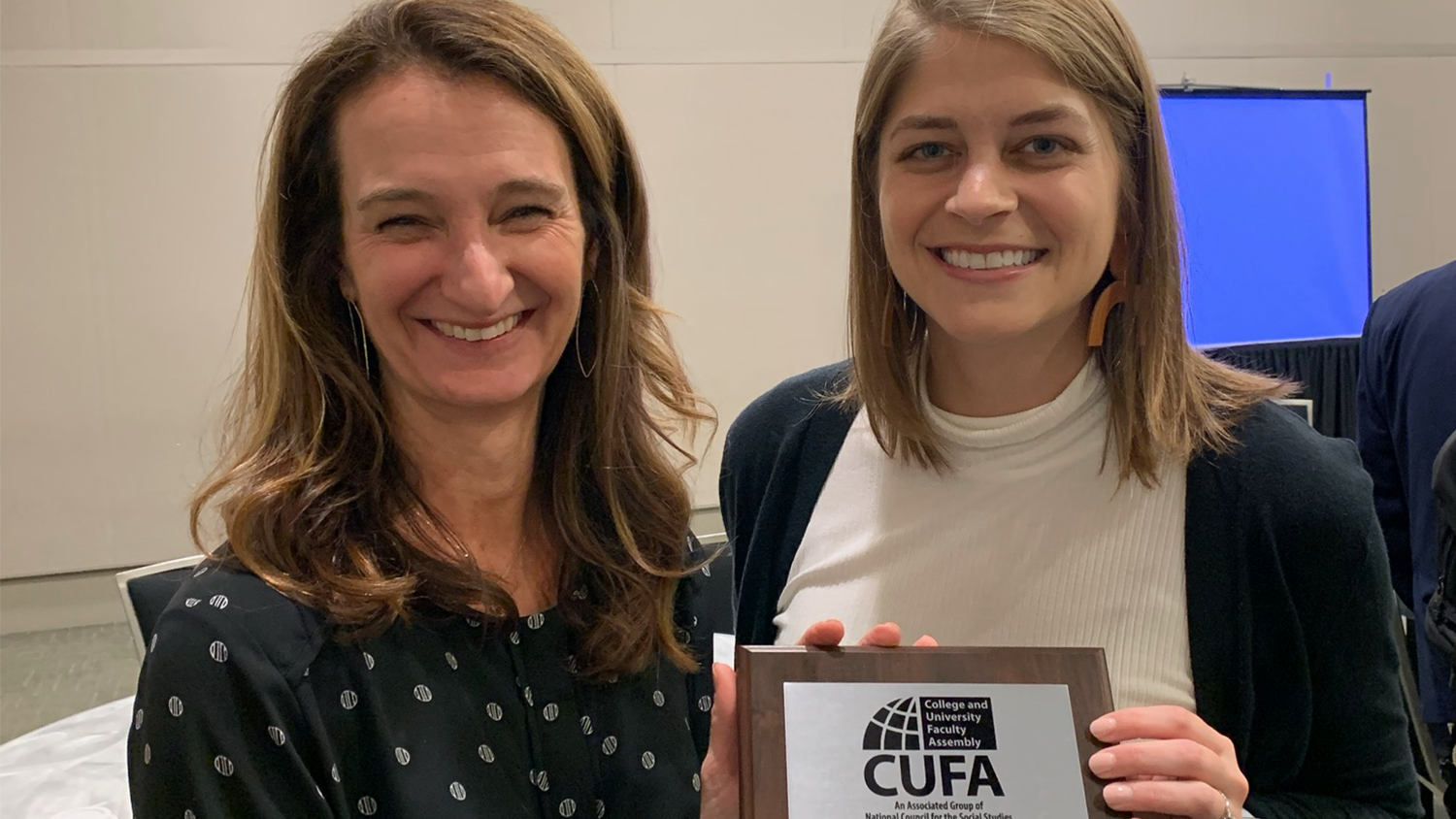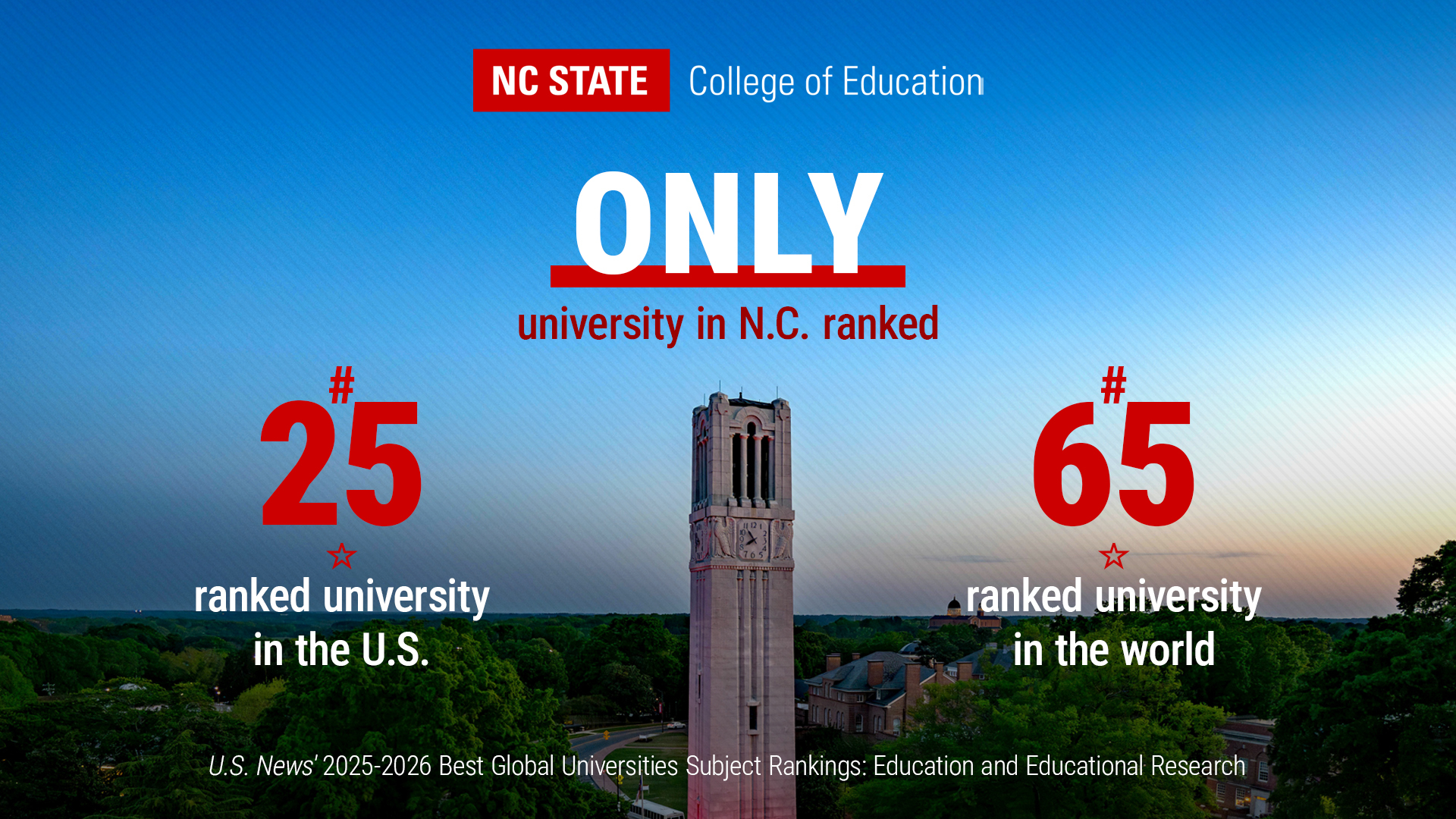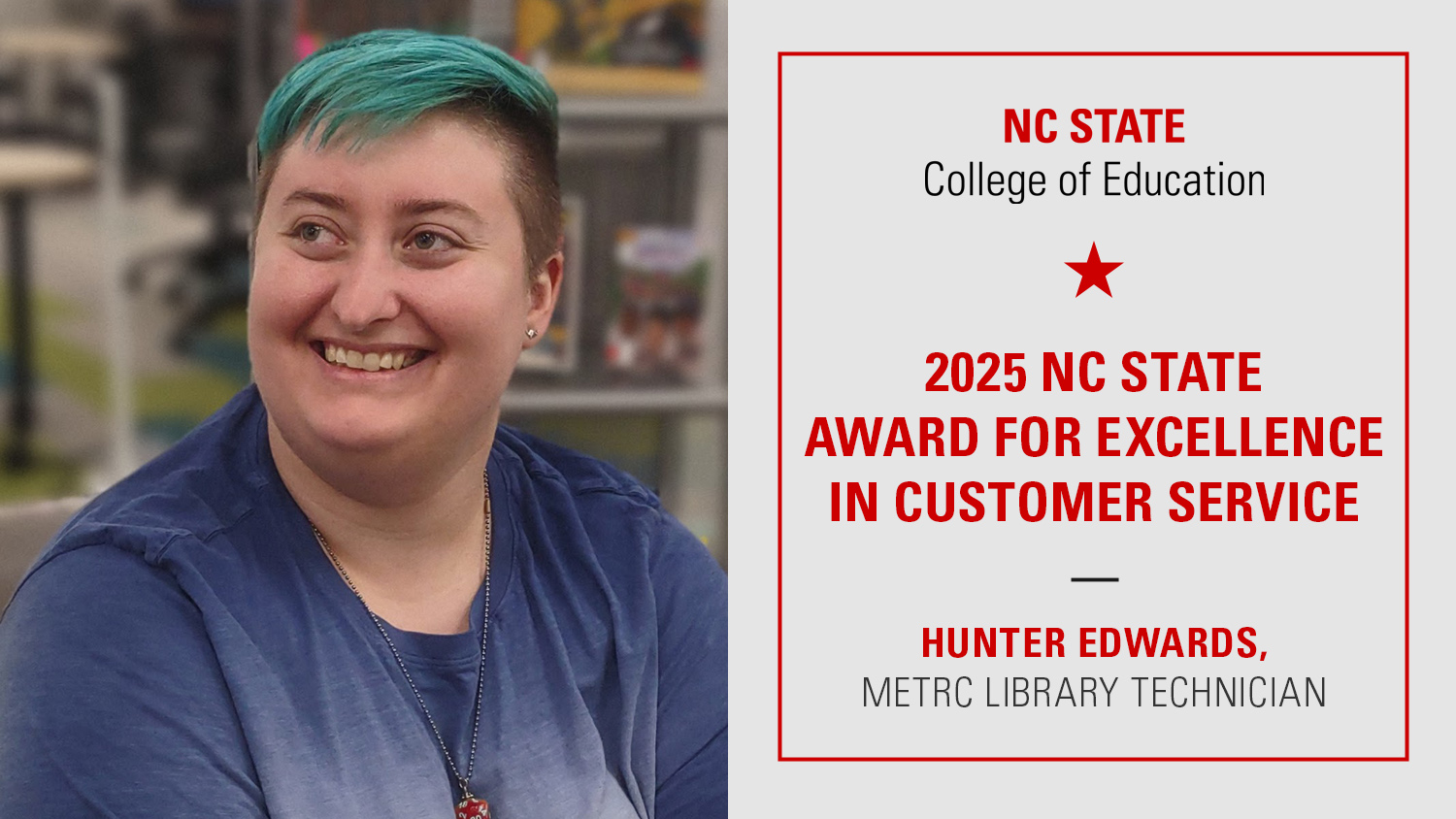Associate Professor Meghan Manfra, Doctoral Student Casey Holmes Win 2019 National Technology Leadership Initiative Fellowship Award

NC State College of Education Associate Professor Meghan Manfra, Ph.D., and graduate student Casey Holmes were recognized for their work at the College and University Faculty Assembly of the National Council for the Social Studies annual conference on Nov. 20 in Austin, Tx.
Manfra and Holmes, a social studies education doctoral student in the Teacher Education and Learning Sciences department, received the 2019 National Technology Leadership Initiative Fellowship Award for their paper “Integrating Media Literacy in Social Studies Teacher Education.”
The award, given in collaboration with the Society for Information Technology and Teacher Education (SITE) and the National Technology Leadership Coalition Initiative (NTLI), recognizes an exemplary paper related to technology and encourages further dialogue among professional associations regarding the appropriate use of technology in teacher education.
“It is a tremendous honor to be recognized for our work in technology and social studies teacher education. We join other honorees from across the disciplines, all dedicated to improving teacher education through the integration of technology,” Manfra said. “It is particularly important, I think, that our research on media literacy is being recognized in the age of fake news and misinformation. We hope our work will have a positive impact on the way media literacy is taught in the future.”
The paper authored by Manfra and Holmes uses the Teacher Education Technology Competencies as a guide to provide a five-part action plan for situating media literacy within social studies teacher education in order to help students develop civic online reasoning, navigate political bias and participate in online civic activities.
The action plan outlined in the paper includes steps such as connecting media literacy with the purposes of social studies education, exploring the history of fake news in the United States, tracing the history of field journalism and journalistic ethics, analyzing contemporary examples of fake news and developing efficacy working with tools and heuristics for detecting misinformation.
“Helping improve our students’ media literacy and exploring the issues surrounding this understanding have never been more important, and we’re only just beginning to scratch the surface when considering the ways in which media literacy and social studies education are connected,” Holmes said. “I am so honored to receive this award as it recognizes the importance of considering students’ and teachers’ knowledge, but also the media literacy and understandings of teacher educators themselves.”
- Categories:


